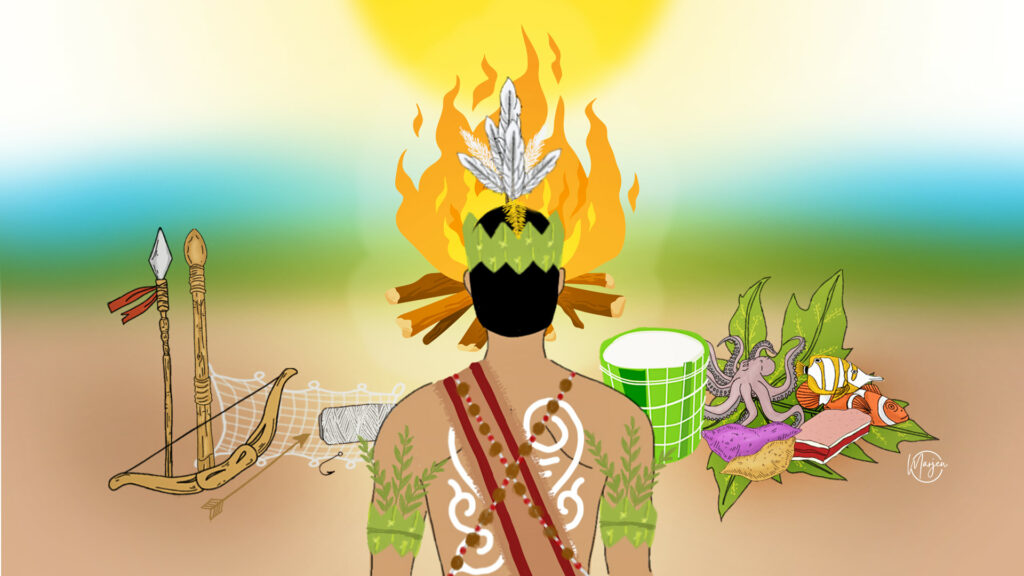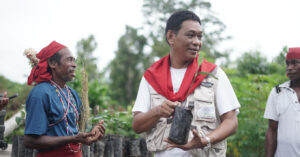
“Nggowor baido nari nggomar.” If we do not sing, then we die.
This old proverb, passed down by Biak elders, reflects how deeply singing is woven into the lives of the Biak people. The singing referred to here is wor, a form of oral tradition that has long held a central place in their culture.
There are 44 types of wor known among the Biak. The word “wor” carries two meanings: as an ritual ceremony and as an ancestral chant.
As a ritual, wor embodies cultural values that govern relationships between humans, the Creator, fellow humans, and the natural environment. These rituals fall into two categories: life-cycle ceremonies and incidental ceremonies.
One such incidental ritual is Wor Fan Nanggi. The word fan means “to give food,” while nanggi means “sky.” Literally, it means “feeding the sky.” This ritual is performed on special occasions such as during harvest celebrations, when seeking protection from disease, or when asking for rain.
The Cosmology of Wor Fan Nanggi
For the Biak, nanggi (the sky) is believed to be the dwelling place of powers greater than human strength. From the sky come the sun, moon, stars, rain, and wind. This cosmological belief forms the foundation of Wor Fan Nanggi, where people offer prayers and offerings to ensure that nature continues to provide its blessings.
During the ritual, participants bring tools that symbolize their daily livelihoods. Farmers carry adaf (a planting stick for tubers), fishermen bring nets and fishing lines, hunters bring spears, bows, and arrows, and sago harvesters bring their tool called amau. By bringing these items, they seek blessings so that their future work may be fruitful. They also offer harvests from the land and sea as an expression of gratitude for what they have already received.
The Verses of Wor Fan Nanggi
The ritual is accompanied by sung verses that express collective prayers and hopes. One chant goes:
God in heaven, look upon us
Come down to earth and share our feast
Send us rain, so that our crops do not wither.
Another verse praises God as the merciful and compassionate sky. At the close of the ritual, participants continue to sing wor as a way of giving thanks for the blessings bestowed upon them.
Wor as an Expression of Gratitude
Thus, Wor Fan Nanggi is more than just a traditional ceremony—it is a communal prayer. It is an expression of gratitude for nature’s abundance, as well as a plea for the continuity of life. The tradition carries the message of balance: humans cannot live without nature, and nature will only give if respected and cared for.
Today, many forms of wor have been transformed into religious thanksgiving ceremonies. Yet the essence remains unchanged: an expression of gratitude and a prayer for blessings to the Creator, whom the Biak people call nanggi or the sky.




